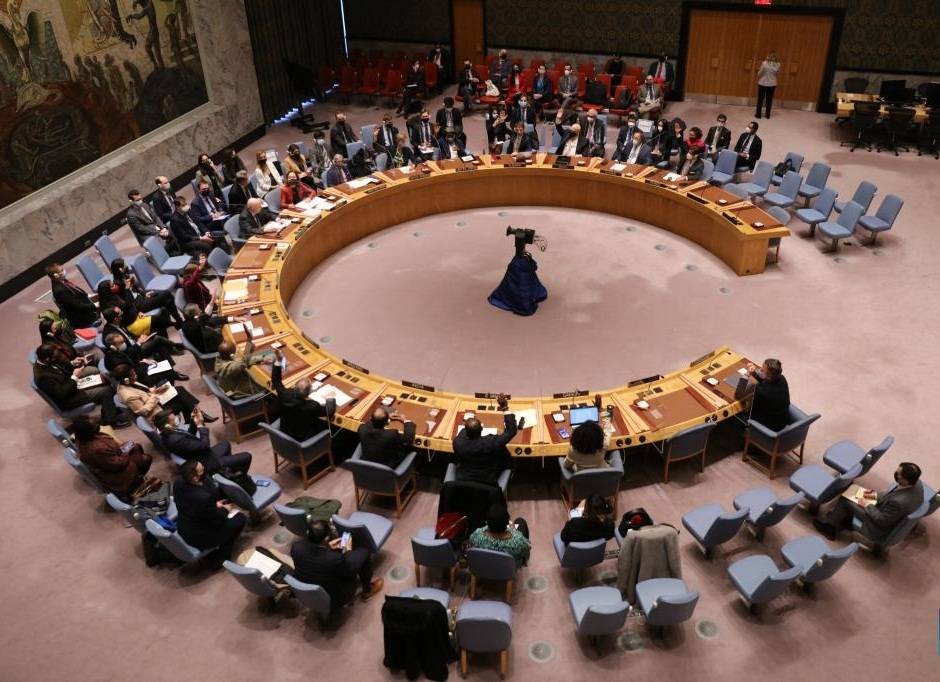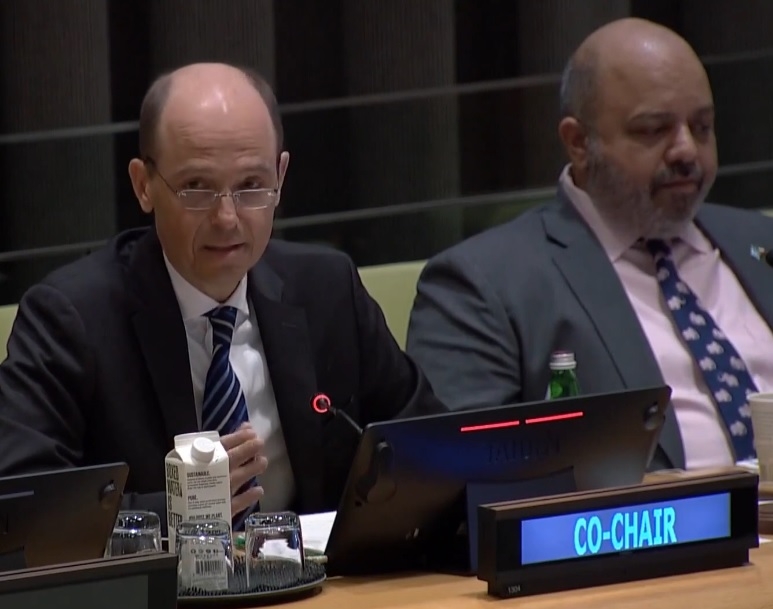The effort at transparency is an attempt at moving forward the reform process that has been mired in procedural wrangling by a small group of countries…reports Arul Louis
After being held under a shroud of secrecy that was selectively shredded by participating countries and without proper records, the negotiations for Security Council reforms officially became open last month through webcasts of its meetings and open postings of documents that began this week.
While the change came about after insistent demands by India and several other countries, closed meetings are continuing, but outside the UN at the Kuwait Mission under the label of “unformal meetings”.
This was revealed publicly by the other part of the transparency initiative: A website unveiled on Wednesday that publishes all the official documents and correspondences, and posts videos of the meetings of the Intergovernmental Negotiations (IGN) as the reform process is known.

The effort at transparency is an attempt at moving forward the reform process that has been mired in procedural wrangling by a small group of countries led by Italy that includes Pakistan blocking the adoption of a negotiating document.
Opening up the official meetings and publishing records of proceedings would expose to the wider world those countries blocking reforms at the expense, for example, of the African countries who have clamoured for redressing the historic injustice of their exclusion from permanent seats on the Security Council.
India’s Permanent Representative Ruchira Kamboj alluded to this at the IGN’s meeting this week when she called for making documents clearer to identify those opposing Africa’s claims.
Announcing the commitment to transparency, the IGN Cochairs, Permanent Representatives Tareq Albanai of Kuwait and Alexander Marschik of Austria, said in a letter to UN members, “We believe we have found an opening that will make a positive impact on the IGN process as a whole — one that enhances its working methods and its transparency and maintains its credibility.”
“We hope that the establishment of this website will be another important step to push the IGN process forward, and ensure its transparency and inclusivity for all member states,” they said.
The cochairs were appointed by General Assembly President Csaba Korosi with a mandate to press ahead with the reforms. The webcasting of the meetings began last month and they are archived online at the Security Council website, along with the texts of speeches and other documents.
Earlier, the meetings were officially closed sessions but gradually some countries began selectively sharing statements with reporters, and then began to post them on the web.
In off-the-record briefings, some missions also informed selected reporters of what other countries had said at the meetings and provided access to documents. Now they will be available online for all to see.
But confidential interactions are the lubricants of diplomacy and the IGN can’t entirely do without them. Letters from the cochairs posted on the transparency website revealed that two “unformal meetings” had taken place last month and two more are scheduled next week.
The co-chairs said the meetings are held under the “Chatham House Rules” — procedures derived from a British think-tank that prevent the identification of the speakers — ensuring a measure of secrecy.
This would facilitate “an unvarnished discussion” on the future of veto powers of permanent members, present and future, at next Tuesday’s meeting, they said.
The Wednesday meeting would be on “low-hanging fruits” — aspects of reform that can easily be accomplished.

Leave a Reply